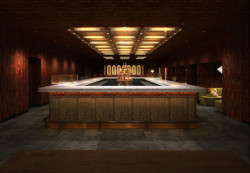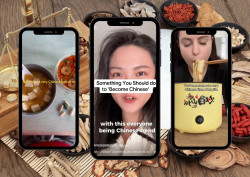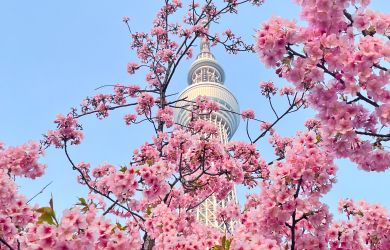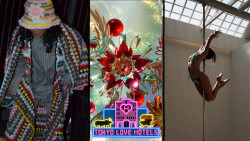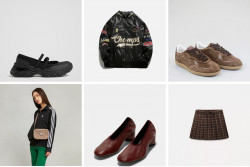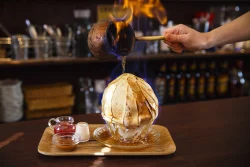
Originally published on metropolis.co.jp on April 2014

The Japanese have long headed to New York to imbibe jazz, R&B, house and hip-hop at the source. A few hardy individuals even stay on to forge their careers amid the competitive pressures of the New York music scene. Metropolis heard from young singer and producer Mio Soul about the ups and downs of being an independent Japanese artist in NYC, and what it feels like to be called “the Japanese Alicia Keys.”
How did you come to be making music in NYC?
I am a singer-songwriter and came to New York to sing a few years ago. I was told that I should start making beats since I know how to play the piano, and I’d also been looking for producers to work with but couldn’t find one. So I started producing music. I started off using Reason 5 and then went to DJ school at Dubspot in NYC where I studied Ableton live software. That experience really changed my life. Not only did I learn skills but I also had the chance to be around very talented people.
How does living in NYC shape your music as compared to living in Japan?
Initially I thought I would be more inspired here in NYC, but now I honestly think I can make music wherever I am. But I actually made my way here to NYC because I needed to know the roots of the music I liked—I had to speak the language, breathe the air and feel the music.
Why did you decide to go the production route this time?
This happens to be another tool to express myself as Mio Soul. I really wanted to share another new world that I created with people.
You began Subliminal Melody as a 30-minute beat making challenge at Starbucks every week for 1 year. How important was caffeine to the process?
Hahaha! Caffeine? I honestly don’t know. I don’t think I get too excited. I always like to order a tall hot cafe mocha and that makes me feel chill. I came up with the project shortly after the Dubspot course because I wanted to keep studying and to make as many tracks as possible. At the same time, I thought it was a good idea because I started reaching people via Soundcloud. At the beginning, there were only 3 to 6 people listening to the tracks. Then several weeks later I saw that about 30 people had started listening to the tracks and that became hundreds per week. That was simply amazing and I appreciated all the feedback too. Those tracks were not perfect but I kept going.
Tell us about the creation of three songs on the album.
Right before I start creating, I close my eyes. I don’t even know what kind of beats I want to make… is it R&B, hip-hop, house or even EDM or techno? With “My Telephone Number” I was in the mood for something in a house/tech-house style. It was quick programming the house drums and then the next 5 minutes was me focusing on selecting the right instruments and effects. It’s like a puzzle process to put the right elements in the right place… The creative process of “Blind 77” was very interesting. I thought I was never going to finish it actually. At the beginning everything seemed separate and I didn’t know what I was doing. That is where this title comes from… When I started making “Boost Me Up” the first draft that I came up with was very light. I remember around this same time Justin Timberlake’s new album had just come out. The JT influence made me shift to a heavier but also uplifting vibe. I looked at my initial direction with the synths and bass I used and decided to change the whole melody. Suddenly the vibe completely changed and you have “Boost Me Up.” Thank you JT!
How does it feel to be called the “Japanese Alicia Keys”?
That is very honorable. I actually I don’t think I sound like her but as a passionate singer and emotional electronic dance music producer (I call my genre EEDM sometimes lol), maybe we have that in common.
How difficult is it for a Japanese R&B artist to connect with a North American audience and how do you try to reach people there?
First of all, we gotta speak the language so that we can communicate. When it comes to singing, especially, so that people can be really attached to the feeling and emotion of the lyrics. Just the overall music and sound isn’t enough. Vibes, passion and soul are important too. That is the reason why I like to make tracks too—to express my soul and vibe. With these two aspects, I was able to reach many different kinds of people here in the USA and also in Asia as well as Japan. Recently I feel that I could connect with Japanese people more. If I perform in Japan, I think I should perform in both languages.
Why do you think US R&B and rap haven’t been more successful in Japan?
I honestly don’t think that those genres are not not really successful in Japan. They may not be the mainstream like J-pop but there are a lot of core fans. I think the fans love those genres but I am not sure if many are really into electronic music just yet. What is really cool to me now is this new style of R&B. It is like a fusion of R&B and electronic music. That is where my vibe is currently.
Where do you see your Mio Soul project heading?
My first EP In My Skin was the first project here in the USA. I created music that showed the roots of music I love and wrote songs reflecting my important experiences in life. I also produced a few of the songs on that EP and I actually rap and sing in Japanese. In My Skin was the raw me. My current instrumental project is me evolving as an artist to show my diversity as a creator. This is definitely a process of rebuilding myself as Mio Soul, constantly asking myself… Who am I? What is my message? These two projects will lead you all to my next project—my second vocal EP, which I will produce. I will share more of my own style and identity with more messages from life and what I have been through. Life should be happy all the time and I wish I was smiling all the time, however life is tough sometimes. Sometimes you gotta stop and figure it out. And sometimes you gotta just hold on. My music is very happy but also very emotional too. I always want my honesty to be reflected in what I am creating.
